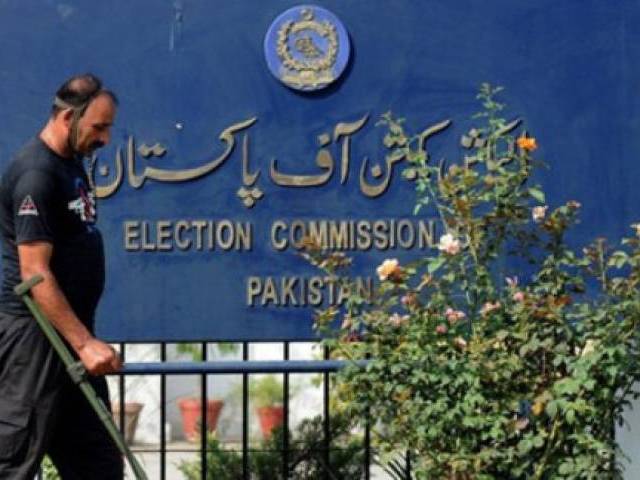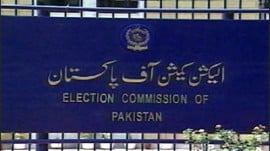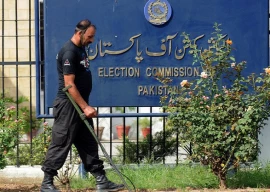
The Election Commission of Pakistan (ECP) explained on Monday that 266 general seats of the National Assembly were distributed among the four provinces on the basis of population and allocated to each district under the relevant constitutional clause as well as the Election Rules.
The ECP issued a statement in view of the concerns raised by the Free and Fair Election Network (Fafen), and stressed that the monitoring group’s analysis was based on the misunderstanding of the criteria used for seat distribution.
The ECP had published a preliminary report of the fresh delimitation that rearranged electoral constituencies in the country in light of the 2023 digital census. The exercise included clubbing of dozens of districts and reshuffling the number of the seats in order to rationalise the population of constituencies.
Over the weekend, Fafen said in a report that over one-fifth of the constituencies exceeded the 10% population variation. The monitoring group also urged the ECP to improve the voter-friendliness of the process of filing representations on the draft constituencies.
The ECP explained that under Article 51, the 266 seats of the National Assembly were distributed among the provinces on the basis of population and the quota of the province was calculated keeping in view the allotted seats and population of the province.
The electoral supervisor added that National Assembly seats were allotted to each district under the Rule 8(2) of the Election Rules 2017 and the constituency was carved out, while keeping in mind the population and the number of seats of each district.
Read also: Sequence of Karachi’s constituencies changed after fresh ECP delimitation
“The analysis on preliminary constituencies is based on a misunderstanding of the relevant provisions of the [Election] Act,” the ECP statement said. “Fafen did not consider the district unit to determine the seats, while analysing the difference in population,” it added.
Apart from population, the ECP continued, there were other rules which had also been listed in the Section 20 of the Elections Act, 2017, including administrative units and homogeneity, which had been considered by the ECP during the initial delimitation process.
The ECP stressed that the recent amendment to the Section 20(3) of the Election Act also supported the fact that the district should be the basic unit and recoding of the reasons in case of 10% increase or decrease in the population in the constituencies.
“The appropriate reasons for the constituencies in which there is this increase or decrease are given in the Preliminary Constituency Report,” the ECP said. “Population data is already available in the primary constituency, while marked and unmarked maps were available on the ECP website,” it added.
Furthermore, the ECP said, instructions and guidelines for submitting representations on the fresh delimitations had also been uploaded on the ECP website. If any mistake was found in the preliminary report, it would be rectified during the hearing of the objections.
The ECP said that there were 64 constituencies which had more than 10% population difference, for which proper reasons were given. It added that Fafen took the quota of the province as a unit and ignored the basic administrative unit, which has caused confusion.
Foreign observers
The Election Commission of Pakistan (ECP) would meet on October 11 to mull over the issue of inviting foreign observers to monitor the coming general elections in the country, expected in the last week of January next year, sources said on Monday.
According to the sources the meeting would be chaired by the Chief Election Commissioner (CEC) Sikandar Sultan Raja at the ECP Secretariat. A detailed briefing would be given to the meeting regarding inviting foreign observers to the general elections and other arrangements in this regard, they added.
Meanwhile, the ECP also postponed a consultative meeting with political parties on the code of conduct for the upcoming general elections until October 11. The meeting was originally scheduled for October 4.





1728201119-0/Copy-of-Untitled-(11)1728201119-0-270x192.webp)
1728198348-0/Untitled-design-(19)1728198348-0-270x192.webp)

1728198641-0/Copy-of-Untitled-(9)1728198641-0-270x192.webp)
1728196512-0/Untitled-design-(4)1728196512-0-270x192.webp)











COMMENTS
Comments are moderated and generally will be posted if they are on-topic and not abusive.
For more information, please see our Comments FAQ